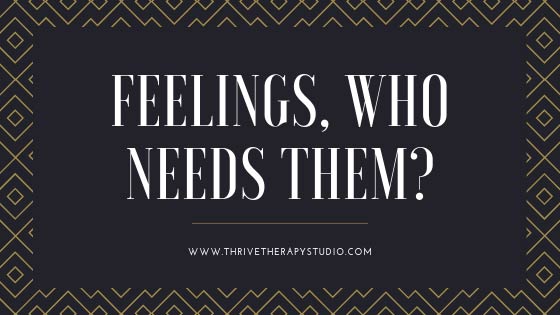As a therapist who specializes in parenting and working with kids and teens, emotions and how we handle them is a big topic in my office. One of the common focuses of my work is about helping people understand themselves better, including understanding their emotions. As a therapist, it often may feel obvious to me that this is really important work but I realize that many parents I work with may not realize just how important our relationship with our own emotions is. So, I thought I would share more about why I am so intent on validating emotions, even the ones that seem illogical or frustrating to others.
My understanding of people and the world centers on the belief that most people really crave understanding. Understanding both of themselves but also from their loved ones. We all want to know that we are both good enough but also that we are not “crazy” or experiencing something others have not or do not. “Is this normal?” and “I’m not crazy, am I?” are common questions when it comes to how we relate emotionally to the world.
Interestingly, our culture seems to work against us in terms of how we relate to our emotions… we get the message that some emotions are “good” and some are “bad,” which means they should essentially be avoided, hidden, or just not talked about. We tend to internalize these ideas and come up with a lot of strategies to avoid our more unpleasant emotions. We might make a lot of jokes, just avoid emotional conversations, find something else to channel our feelings into, or just pretend nothing is bothering us. Unfortunately, while these strategies may seem to work in the short term, they usually stop working when our emotional cup becomes too full usually because of some challenging life event. Divorce, a big move, loss of a loved one, birth of a child, losing or changing jobs, etc. can all be big triggers for experiencing a lot of previously avoided emotion.
This is why therapy can be very uncomfortable for people. In therapy, we often ask people to not just identify their feelings, but to share them and learn how to both express and experience them. This is tough for most people, especially the most practiced avoiders! However, the more we can look at our emotions as helpful cues to our environment, rather than judge them as good or bad, the better we are going to be able to respond and cope with unpleasant situations and feelings.
The first step in learning how to manage our emotions is simply to accept we have them. As a therapist, this is why it is so important to me that I validate another person’s experience and emotions. I might say something like: “Yes, it makes sense to feel the way you are feeling. I might feel that way too.” This helps us remember that our emotions are a very human part of us and we all have them. They are not some strange, foreign part of us to be scared of, they are a part of us to learn to embrace.
And as a parent consultant, this is why it is important to me that we, as parents, learn to validate our child’s experience. By validating their experience and saying, I see you and your feelings and they are not only okay with me, but understandable, we communicate to them that they are seen and heard and not alone. Validation and understanding of emotions can help prevent a situation from escalating, help our kids learn how to experience their emotions rather than engage in unhealthy distraction and coping behaviors, and can help them have a healthy relationship with others.
Here are some ways to help you work more emotional understanding into either your relationship with yourself or your child(ren):
- Notice: the first step is to notice your emotions and/or those of your child. Just observe what emotions are coming up. Sometimes having a list of feeling words can be helpful if this is an area that is really uncomfortable for you.
- Identify and Express: Identify the feeling that you or your child is having and express it. Example: “I am feeling sad, I think it may be because we have not spent as much time together as usual.”
- Be curious: If you are experiencing an emotion or your child shares an emotion with you, just be curious about it. If they say, I feel jealous rather than judging jealousy as a bad feeling or offering advice, simply ask for more information. “Oh really, jealous huh. What do you think is going on? What does that feel like for you?”
Notice that these questions are just geared to help you notice, express, and communicate about feelings. Often, when feelings are “heard,” they dissipate more quickly than if they are resisted, suppressed, or avoided. When we avoid them, they usually get louder to be heard. So, just by listening more intently to ourselves and our children and using curious observation and questions, we can often defuse difficult emotional situations.
Reach out to start
your healing journey


